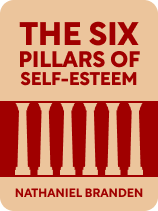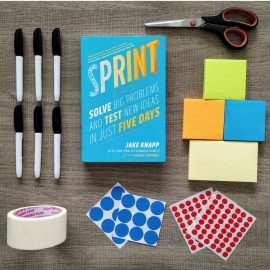

This article is an excerpt from the Shortform book guide to "The Six Pillars of Self-Esteem" by Nathaniel Branden. Shortform has the world's best summaries and analyses of books you should be reading.
Like this article? Sign up for a free trial here .
Are you looking for The Six Pillars of Self-Esteem quotes by Nathaniel Branden? What are some of the most noteworthy passages worth revisiting?
In The Six Pillars of Self-Esteem, psychotherapist and self-esteem expert Nathaniel Branden argues that the key to developing healthy self-esteem lies in your behavior: What you do is the most important factor that determines your self-esteem.
Below is a selection of key passages and what they mean.
Quotes From The Six Pillars of Self-Esteem
In modern times, most of us believe that improving our self-esteem is essential to our psychological health. But what is self-esteem? Why does it matter? How do you develop it, and how do others affect it? Psychotherapist and self-esteem expert Nathaniel Branden answers these questions in his book The Six Pillars of Self-Esteem.
The following The Six Pillars of Self-Esteem quotes highlight some of his key ideas.
“To live consciously means to seek to be aware of everything that bears on our actions, purposes, values, and goals—to the best of our ability, whatever that ability may be—and to behave in accordance with that which we see and know.”
According to Branden, living consciously improves your confidence in your capability—and thus your self-esteem. When you live consciously, you don’t just react to what happens. You proactively decide what your goals are, create plans to achieve them, then implement those plans.
Your self-esteem stems from the process of succeeding and not from the success itself: If you win a race, your confidence rises not because you won but because you were able to create and follow a winning training plan.
“In addition, if a person makes the error of identifying self with his work (rather than with the internal virtues that make the work possible), if self-esteem is tied primarily to accomplishments, success, income, or being a good family provider, the danger is that economic circumstances beyond the individual’s control may lead to the failure of the business or the loss of a job, flinging him into depression or acute demoralization.”
Branden warns against drawing one’s self-esteem from professional achievements. So much of your professional success is out of your control: For example, you may be fired if your company loses money. So if you derive self-esteem from your professional success, you risk letting setbacks you can’t control diminish not only your financial standing but also your self-worth.
“If I am unwilling to take responsibility for the attainment of my desires, they are not really desires—they are merely daydreams.”
If you don’t take responsibility for yourself, you risk never improving your life. Some people who aren’t self-responsible wait for someone to come to save them instead of fixing their own lives. But this person never appears, so their lives never improve.
According to Branden, Nathaniel Branden, taking responsibility means taking ownership of your life, behavior, and well-being. In other words, you stop the external factors for your misfortunes—you take responsibility where it’s due.

———End of Preview———
Like what you just read? Read the rest of the world's best book summary and analysis of Nathaniel Branden's "The Six Pillars of Self-Esteem" at Shortform .
Here's what you'll find in our full The Six Pillars of Self-Esteem summary :
- Exactly how to behave to improve your self-esteem
- Why you need to take responsibility for your life and actions
- Why so many self-esteem techniques don't work






